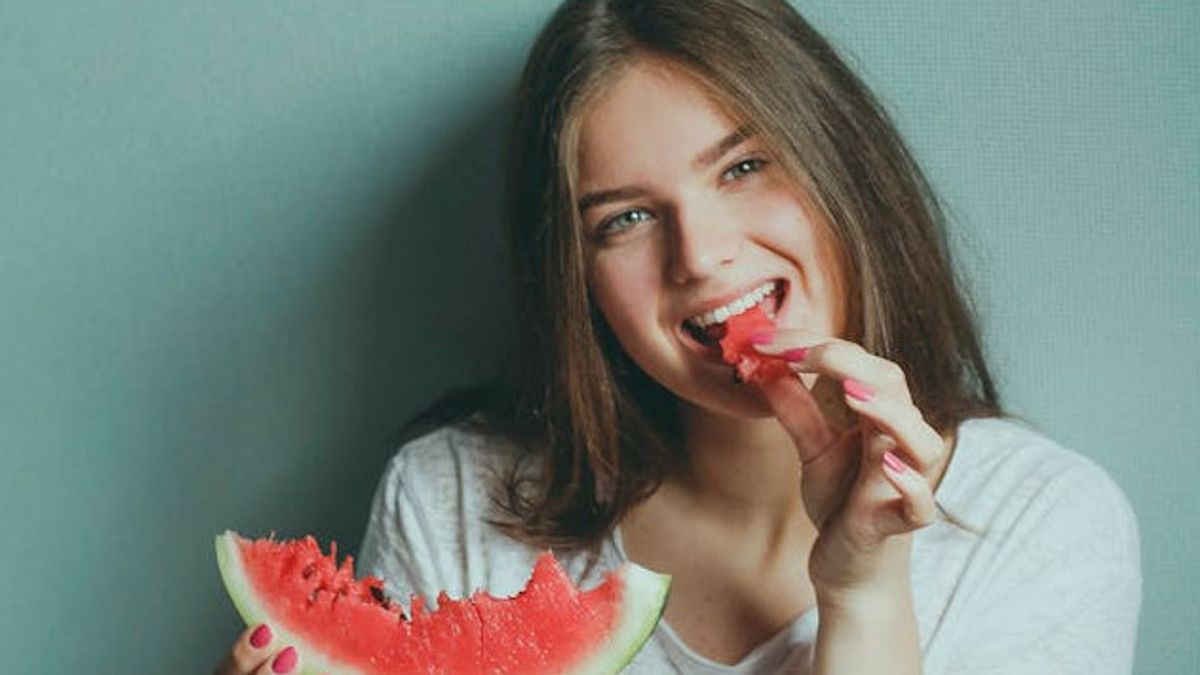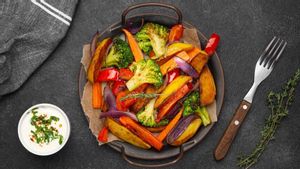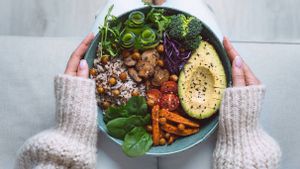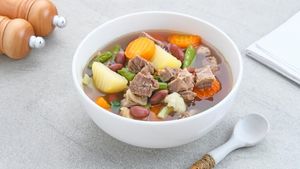JAKARTA - Maintaining the skin from the sun requires sunscreen. However, internal protection such as breakfast meals is equally important. Why is that? Because, humans turn out to have a skin clock'. Joseph S. Takahashi, PhD, chairman of neuroscience at Peter O'janelli Jr. Brain Institute, University of Texas Southwest Medical Center and his team conducted research and found that enzymes that repair damaged skin due to UV. Has a daily production cycle that can be changed by eating food at unusual times.
So, instead of eating midnight snacks, try putting this healthy food into your breakfast meal from Homeline, Tuesday, August 6.
Blueberry is rich in strong antioxidants that fight skin-scattering free radicals due to sun exposure and stress. Blueberry is also a source of vitamin C that can help prevent wrinkles. You can put blueberries in the breakfast menu by mixing these purple fruit into smoothies, juices, or as pancake toppings.
Tomatoes are known to contain lycopene, a red antioxidants in tomatoes. However, watermelons actually contain even more. Likopen absorbs UVA and UVB radiation, although it may take several weeks for the skin to become more photoprotective due to its turnover rate, according to a 2012 study.
After several weeks of consuming watermelons every day, lycopene can act as a natural sunscreen. However, the researchers note that it does not immediately replace other protective measures, such as SPF and sun protection clothing, against sunspots and skin damage. However, in terms of anti-aging.
Walnuts, hemp seeds, Chia seeds, and hemp all contain essential omega-3 fatty acids. Fish and eggs are also a source of good fat for the skin. The body cannot produce omega-3, so it's important to get it from food.
What are the benefits of omega-3 for the skin? Omega-3 helps maintain skin integrity and is also anti-inflammatory. Omega-3 also helps the body naturally overcome the effects of too much time in the sun.
The body converts beta carotene into vitamin A, which is essential for skin health. A 2007 meta-analytic found that beta carotene provides natural protection against sunlight after 10 weeks of regularly consuming supplements.
Consuming a variety of foods rich in this diet will make meeting daily needs easier. Carrots and green vegetables such as kale and spinach are an additional rich in beta carotene for your food, even for breakfast smoothies.
In particular, green vegetables contain lutein antioxidants and high zeaxanthins. Both have been found to protect the skin from wrinkles, damage to sunlight, and even skin cancer.
SEE ALSO:
In a 2010 study, researchers found that the consumption of green tea caused fewer tumors caused by UV rays in mice. This is due to flavonoids contained in green and black tea known as EGCG.
Another animal study of green tea found that green tea reduces skin damage due to UVA light and protects against collagen decline. Collagen is the most abundant protein in the body. Collagen provides integrity and tightness to the skin.
When it comes to vegetables and fruit, the general health rule that must be obeyed is choosing foods that are brighter in color. This is because these foods tend to contain more antioxidants.
However, cauliflower that have a pale color are not included in this rule. Collision flowers contain strong antioxidants to help fight oxidative stress from free radicals. In addition to these benefits, cauliflower is also a natural food that protects against sunlight thanks to histidin. This alpha-amino acid stimulates the production of urocanate acids, which absorbs UV radiation.
The English, Chinese, Japanese, Arabic, and French versions are automatically generated by the AI. So there may still be inaccuracies in translating, please always see Indonesian as our main language. (system supported by DigitalSiber.id)














